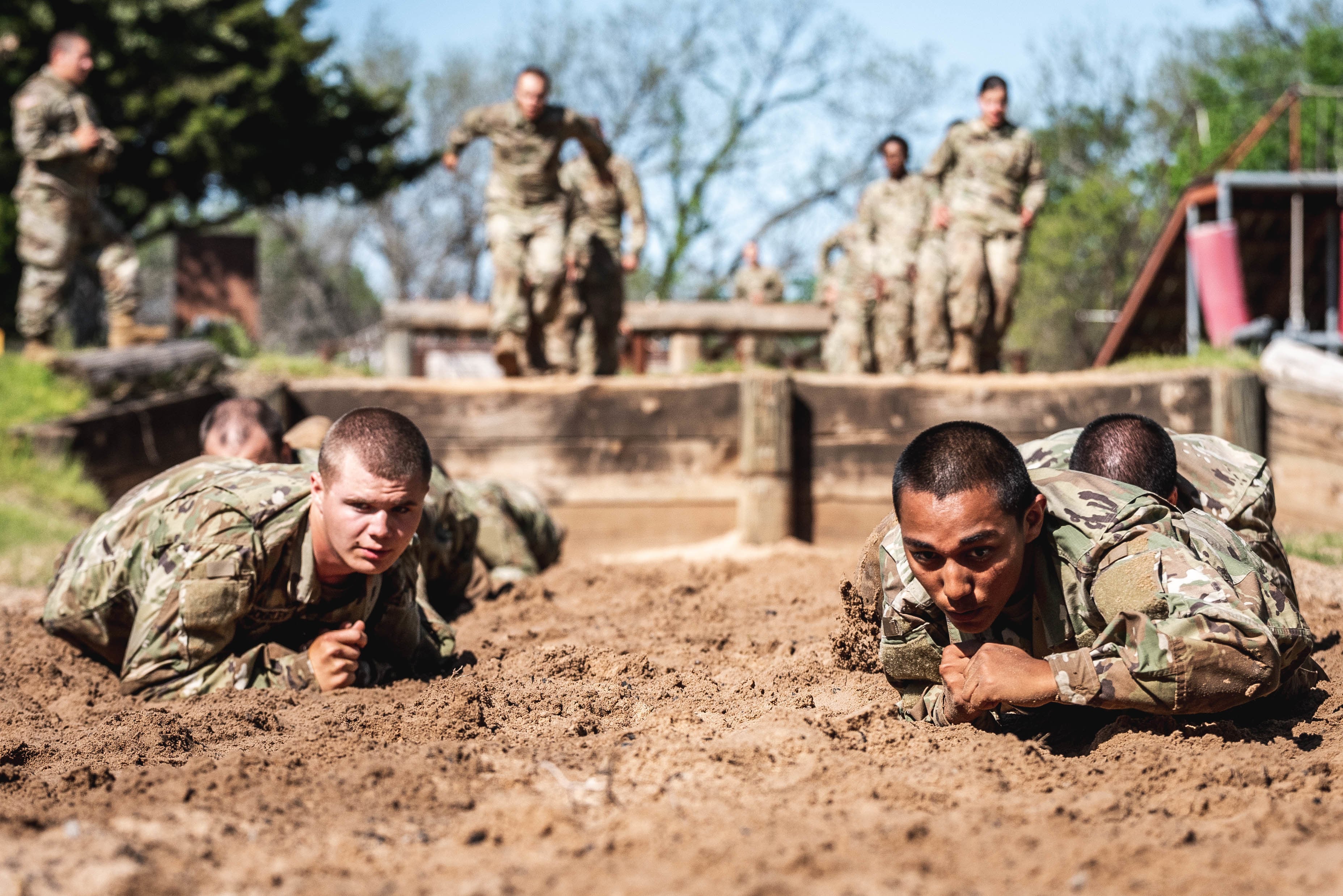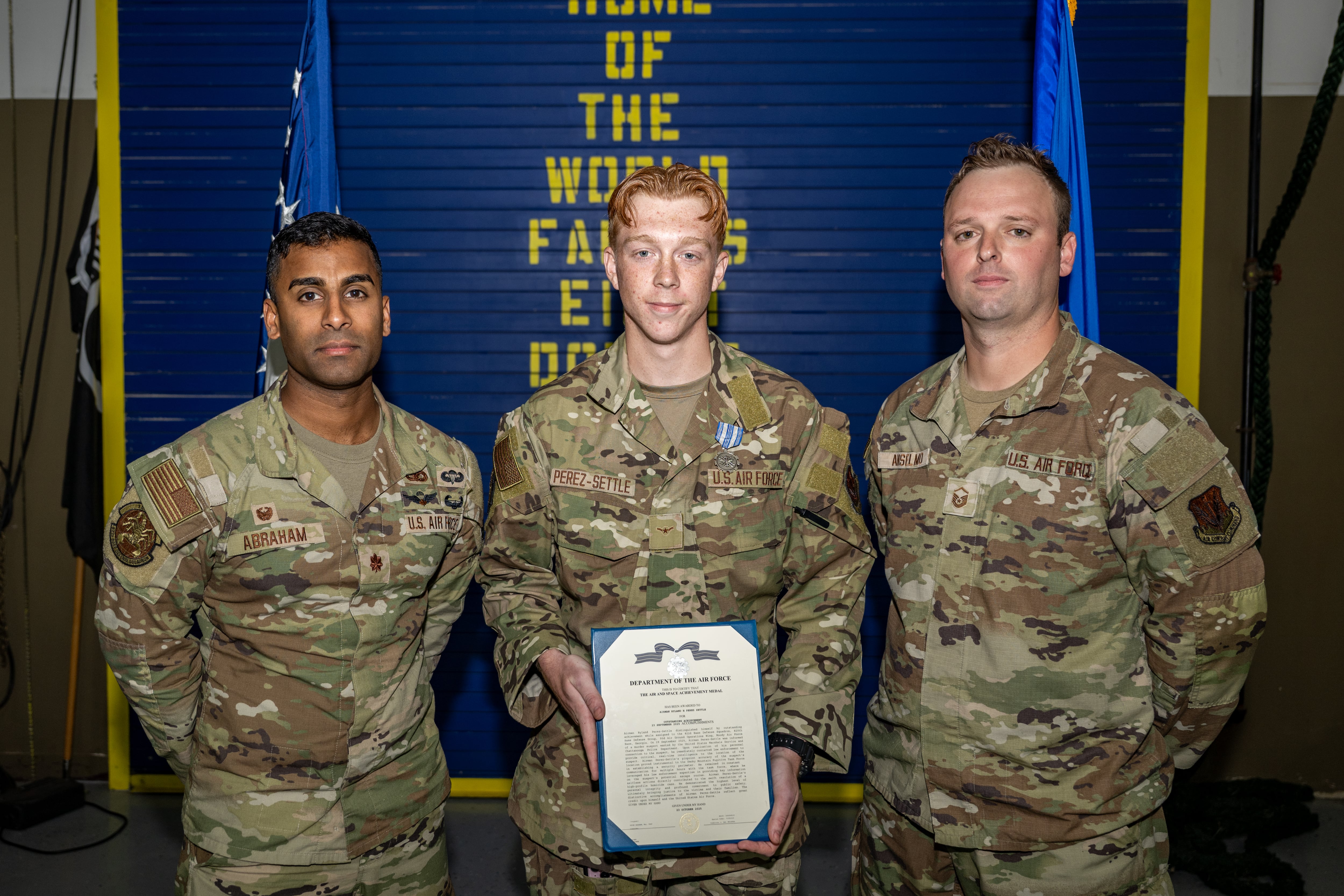More than 140 individuals training at Fort Benning, Georgia, and about 70 at Fort Leonard Wood, Missouri, have tested positive for the COVID-19 virus, the two posts said in statements on Sunday.
Both posts conducted mass tests when recruits reported having symptoms after the end of their 14-day controlled monitoring phases, a new part of basic combat training added to prevent the virus from spreading freely among new recruits.
Army Chief of Staff Gen. James McConville previously said that many COVID-19 cases among Army recruits are asymptomatic, which is “why the testing becomes very, very important, especially with the younger population.”
The cluster of cases at the two training sites was announced despite Pentagon guidance from late March ordering base commanders to stop publicly releasing their COVID-19 case numbers due to concerns that adversaries could exploit the information.
“An exception was made in the cases of Ft. Benning and Ft. Leonard Wood because the numbers were so high this time around,” said Army spokesman Jason Waggoner. “Army Senior Leaders wanted to have transparency on these cases so an expectation was made.”
Health professionals at Fort Leonard Wood first screened and tested about 500 soldiers and trainees assigned to 1st Battalion, 48th Infantry Regiment, upon their arrival, according to officials there. All test results were negative, and they then began the 14-day monitoring phase.
“Four days after the end of the group’s controlled monitoring phase, a trainee reported to Harper In-processing Health Screening Facility with symptoms, and immediately, all 500 were tested again, resulting in the increased positive test results,” the post said in its statement this weekend.
RELATED

Officials at Fort Benning ran into a similar issue.
About 640 soldiers and trainees assigned to the 30th AG Battalion and 2nd Battalion, 29th Infantry Regiment, were initially screened and tested by medical professionals at the beginning of their 14-day monitoring period. All but four test results came back negative.
Those four individuals were isolated, and have since recovered and received negative test results, according to Fort Benning. However, others there later caught the virus.
“Eight days after the end of the group’s controlled monitoring phase, a trainee reported to his unit leadership with symptoms, and immediately, all 640 across the two units were tested again,” the Fort Benning statement reads. “Of those tested, 142 had positive results.”
Both posts said they were conducting contact tracing to identify anyone who could have been infected. Officials have isolated and quarantined others as appropriate and said that all impacted buildings, dining facilities and training areas within the affected unit areas have been sanitized in accordance with CDC guidelines.
The originally Army paused taking in new recruits for basic combat training on April 6, citing the issues with moving personnel across the country during a pandemic, but officials resumed the effort two weeks later. They said the service would continue taking recruits from areas in the United States that have been less impacted by the virus or were already recovering based on health tracking models.
When the pause ended, Army Chief of Staff James McConville said the service had increased the number of testing devices at basic training sites in order to proactively test incoming recruits, regardless of whether they were showing the symptoms commonly associated with COVID-19.
“Even those who we tested after we had one or two positive cases, the ones we found out, were mostly asymptomatic," McConville said in mid-April. “So they weren’t showing symptoms. That’s why the testing becomes very, very important, especially with the younger population.”
Kyle Rempfer was an editor and reporter who has covered combat operations, criminal cases, foreign military assistance and training accidents. Before entering journalism, Kyle served in U.S. Air Force Special Tactics and deployed in 2014 to Paktika Province, Afghanistan, and Baghdad, Iraq.





